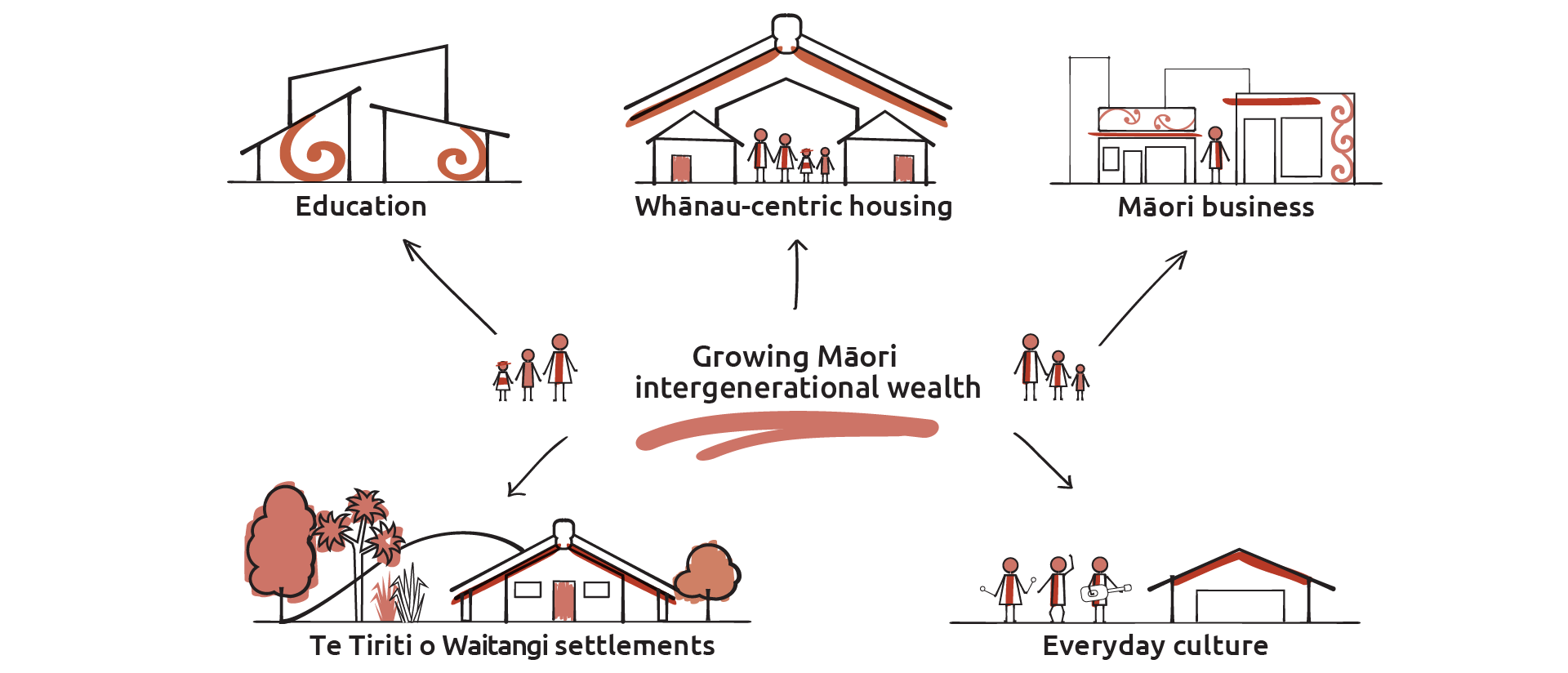Some council services will be unavailable over the Christmas and New Year break.
Check if you need to apply or order before Friday 19 December 2025.
A key challenge for Māori within Tāmaki Makaurau is to create opportunities for intergenerational wealth (cultural, social and economic wealth transferred from one generation to the next).
Loss of traditional land, undermining of Māori culture and impacts of economic reforms have contributed to a lack of individual and whānau Extended family, family group, a familiar term of address to a number of people. Also the primary economic unit of traditional Māori society. assets handed down to the next generation.
Māori ownership of business, land and other assets provides the strongest opportunity to express rangatiratanga There are two components: 1. chieftainship, right to exercise authority, chiefly autonomy, chiefly authority, ownership, leadership of a social group, domain of the rangatira, noble birth, attributes of a chief. 2. kingdom, realm, sovereignty, principality, self-determination, self-management - connotations extending the original meaning of the word resulting from Bible and Treaty of Waitangi translations. and aspirations for cultural and social wellbeing.
Several te Tiriti o Waitangi The Treaty of Waitangi which is the document upon which the British and Māori agreed to found a nation state and build a government. settlements have occurred within Tāmaki Makaurau with others likely to occur over the coming years. These settlements provide an opportunity for Māori collectives to create economic resilience and build the Māori asset base. Building that asset base can achieve outcomes for their people in education, housing, business and enterprise.

Different ways to build Māori intergenerational wealth.
There are a number of ways to create intergenerational wealth for whānau.
Whānau-centric housing models such as papakāinga Settlement or village on communal Māori land. not only grow hapū A number of whānau sharing descent from a common ancestor; kinship group, sub-tribe. and iwi A number of hapū (section of a tribe) related through a common ancestor. asset bases but also provide homes where tamariki Children. can grow and learn, confident in their identity.
To make more of these whānau-centric models possible, some of the key constraints on the retention and use of Māori land for housing and development will need to be mitigated. These include access to finance, land use regulations, the capacity of iwi and the challenge of coordinating with various organisations.
Education is also an important pathway for individuals and their whānau to increase their financial literacy and grow their savings. This will empower whānau to determine their future ownership outcomes.
Māori business owners and the self-employed are major contributors to economic activity that can grow intergenerational wealth.
The point of difference that many Māori businesses bring to the market is their intergenerational focus and intentional contribution to multiple outcomes - cultural, social and environmental.
However, Māori businesses are also likely to be more exposed to climate change risks as they lack the resources necessary to transition and adapt.
Our efforts can focus on: